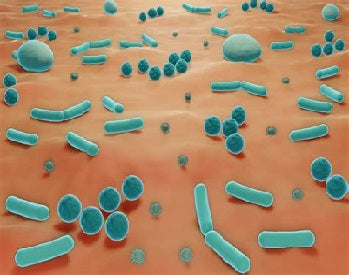
Facial Flora (Probiotics) for Healthier Skin
The human skin is home to a diverse ecosystem of microorganisms, including bacteria that contribute significantly to our overall skin health. Recent research has shed light on the complex interactions between these bacterial communities, particularly on the face, and how they can be leveraged to develop effective probiotic treatments. Understanding these dynamics not only opens new avenues for treating common skin conditions like acne but also offers potential benefits for anti-aging and overall skin vitality.
The Role of Bacteria in Skin Health
The skin microbiome is primarily composed of two bacterial species: *Cutibacterium acnes* and *Staphylococcus epidermidis*. While *C. acnes* is often associated with acne, emerging research suggests that certain strains can actually promote skin health. The balance between these bacterial populations plays a crucial role in maintaining skin integrity and preventing inflammation.
Acne and the Microbiome
Acne is a multifaceted condition influenced by genetics, hormones, and environmental factors. The study of facial bacteria has shown that the dynamics of *C. acnes* populations change significantly during the early teenage years, a period marked by increased oil production and hormonal changes. This transitional phase may provide an optimal window for introducing beneficial probiotic strains that can help prevent acne and promote a healthier skin microbiome.
Probiotics: A New Frontier in Skin Treatment
Probiotic treatments derived from beneficial strains of *C. acnes* could revolutionize how we approach skincare. By restoring balance to the skin microbiome, these probiotics can potentially reduce inflammation, prevent acne outbreaks, and even enhance the skin's barrier function. The idea is to apply probiotics topically, allowing them to colonize the skin and compete with harmful bacteria.
Benefits of Probiotics for Skin
1. Reduction of Inflammation: Probiotics can modulate the immune response, helping to reduce the inflammation associated with acne and other skin conditions.
2. Enhanced Skin Barrier: A healthy microbiome strengthens the skin's barrier, making it more resistant to environmental stressors and pathogens.
3. Improved Hydration: Probiotics may enhance skin hydration by promoting the production of natural moisturizing factors, leading to a more supple appearance.
4. Anti-Aging Effects: By improving skin elasticity and reducing inflammation, probiotics can help diminish the appearance of fine lines and wrinkles, contributing to a more youthful complexion.
Regenerative Medicine and Skin Probiotics
The intersection of regenerative medicine and dermatology holds exciting potential. Probiotics can be integrated into regenerative treatments, such as skin grafts or dermal fillers, to enhance healing and improve skin texture. For instance, combining probiotics with advanced biomaterials could lead to the development of innovative wound dressings that promote faster healing and better aesthetic outcomes.
Future Directions in Skincare
As research continues to unravel the complexities of the skin microbiome, we can expect the emergence of a new class of skincare products that harness the power of probiotics. These products will not only target existing skin issues but also promote long-term skin health by fostering a balanced microbiome.
Conclusion
The study of facial bacteria represents a significant leap forward in our understanding of skin health. By leveraging the insights gained from microbiome research, we can develop probiotic treatments that offer new solutions for acne, aging skin, and overall skin vitality. As we move towards a future where skincare is personalized and microbiome-focused, the potential for healthier, more radiant skin is greater than ever.
Embracing the power of probiotics may soon become an essential part of our skincare routines, paving the way for healthier skin at every stage of life.
Sources:
1. American Academy of Dermatology - Skin Microbiome Link
2. National Institutes of Health - Understanding Probiotics Link
3. Mayo Clinic - Acne Treatments Link